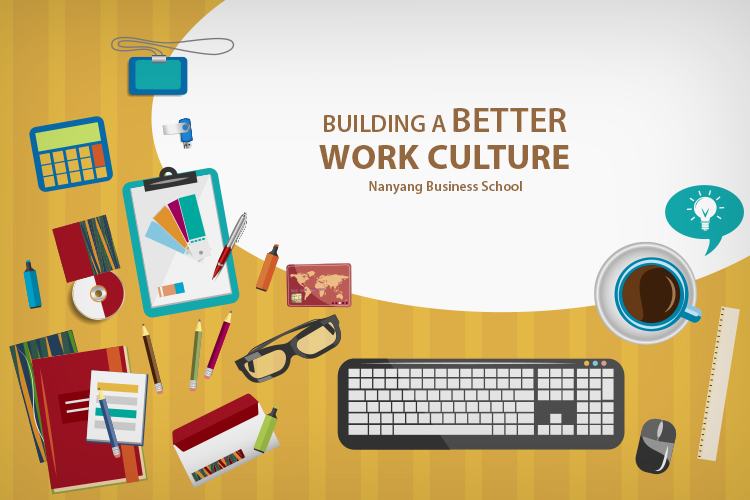A great work culture is the secret to a successful organisation. And that culture depends on how happy and productive your employees are. Your management skills are key to making employees relish the thought of showing up for work that they enjoy on most days. Armed with your Nanyang Fellows MBA experience, you’ll know how to make things even better than they already are at work.
Here are some pointers.
- Get Rid of Toxic People:
Every person you hire will be a part of your work environment. That means that they can either add to it positively or bring in negatives that ruin it. So you can’t let the bad seeds spoil your team. Daily performance is correlated with good attitudes in the workplace. If you find somebody putting others down or not contributing to teamwork, you need to act. It’s hard to tell people that they are about to be unemployed, but there is too much at stake to ignore the matter. Hire well. Make sure that you and the other interviewers know exactly what you want from the candidate and what you don’t want. Still, sometimes people will surprise you.
- Create a Comfortable Work Space:
Cleanliness shouldn’t be limited to your home. A workspace is conducive to productivity if it is clean, well lit, organised and comfortable. Take a look at the furniture; is it somewhere you’d like to sit all day? Or will it give the user a backache to nurse? Invest in your team or employees’ well being. For example, bad light can lead to eyestrain and headaches. That, in turn, can bring down productivity levels. Also, consider dedicating a space for employees to take a break. It could be a small room with beanbags for quick naps or maybe a ping-pong table for a de-stressing game between meetings. Just ensure that those working at that time aren’t disturbed and trust everybody to use their time well.
- Foster Relationship Building:
Cubicles or cabins or an open structure shouldn’t affect collaboration between your employees. Introducing regular events like Pizza Night or an Evening at the Bar is sure to give folks an opportunity for conversation. You could even throw in a short, informative speech to update everybody about the things happening at work. Even then, don’t try to control the entire event and let them talk because that is how they’ll loosen up and let their ideas flow. There are way too many situations of colleagues being so formal with each other that they are too scared of criticism to share their ideas and feedback openly.
- Connect One-on-one:
It’s easy to communicate by office email and phones. But don’t forget to spend some quality one-on-one time with your team. Just as they need your feedback about how they are doing, you need their inputs as well. Taking both sides into account is how your work culture ends up making everybody happy. So talk and listen. Never forget to say thank you when recognition is deserved as appreciation creates enthusiasm. Once individuals are enthusiastic about their work, they’ll work harder and strive to create an impact – which helps the company progress.
- Set Clear Roles and Expectations:
A good manager communicates clearly. Employees always know what is expected of them and have their roles clearly defined. You need to explain each team member’s role and the responsibilities that come with it. Connect that to other team member’s roles and the company goals and objectives and strategy. If there seems to be a problem, sit down and explain so that all aspects of the role can be realigned or understood better. For instance, is A focusing too much on meeting his own sales target and ignoring the big picture?
As every company grows older, communication forms the backbone of running a business productively. Imagine trying to get every employee to agree with every decision when you’re double in number or size. You certainly can’t create a process for everything from scratch. That’s where an effective work culture comes in. When it’s good, new entrants will learn how things are done, by just being a part of the team.







